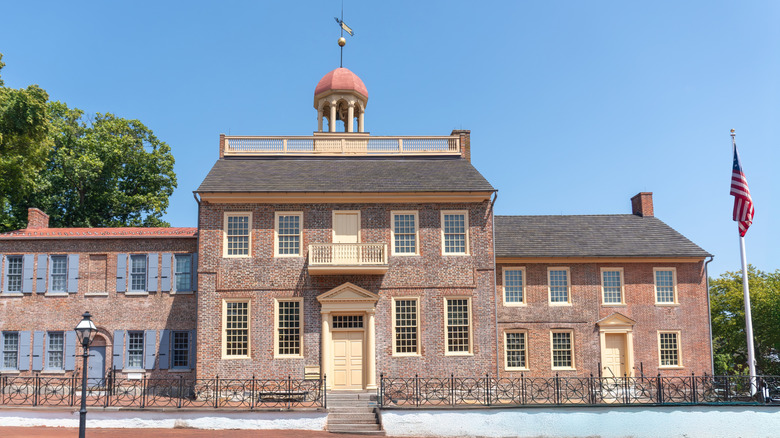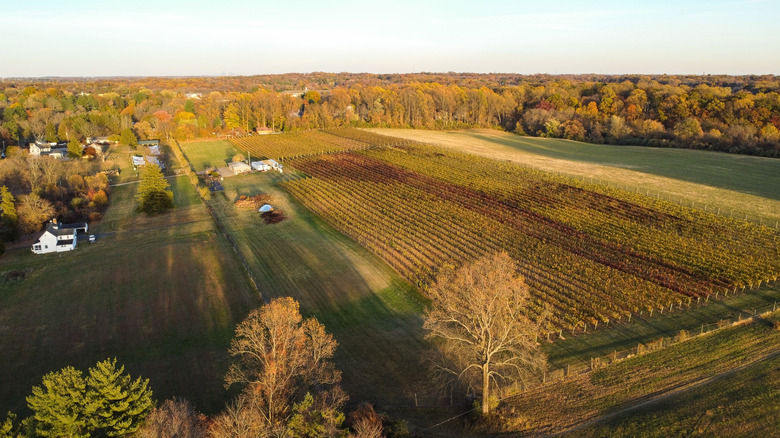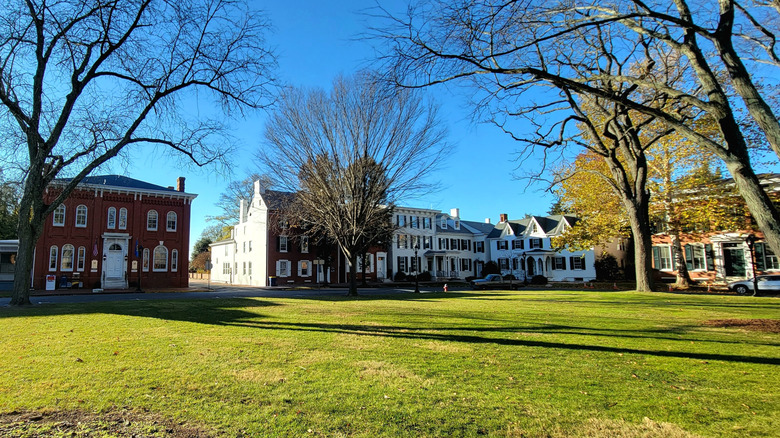Delaware's Only National Park Is A Fascinating Historical Site That Represents The Start Of The United States
Delaware's only national park is called First State National Historic Park — but that name can be deceiving. The designation might make you think that this is a single plot of land with an important historical location, a visitor center, and maybe a system of hiking trails running through it. That's not the case at First State. It's made up of six different sites with historical significance, all protected as the same historical park. At the different sites you'll find more than 1,000 acres of fields and trees, a spot where a colony was established centuries ago, a Victorian era courthouse, a church from the late 1700s, the place where the Constitution was ratified, and the home of an important Revolutionary War era writer. The National Park Service advises visiting them all, in any order you choose, to understand the full picture of the state's history that they are attempting to share.
Although it is completely free to visit this national park, you should be prepared to pay for entrance to some of the attractions. While there's no official visitor center, consider starting your trip in Historic New Castle, less than an hour from Philadelphia. The 1858 Sheriff's House is the perfect place to begin by stopping in its welcome center to see its historical exhibits and talk to staff members about visiting any of the sites included in the park. Stop in next door to see the New Castle Court House [pictured] next, and learn about the abolitionists who were tried here because of their efforts to free enslaved people.
Visit Wilmington to visit three sites in First State National Historic Park
Wilmington, Delaware is a riverfront gem, known as one of the most affordable weekend getaways on the East Coast, is also home to three of First State's National Historic Park's sites. Start at Fort Christina, the site of the original Swedish and Finnish settlement that would one day become Wilmington. Here, you can walk along the flagstone pathway, admire the river, and check out the statue of a ship donated to the park by the nation of Sweden. Next, visit Old Swedes Church, which was built by the settlers who landed at Fort Christina at the end of the 1600s and has remained an active place of worship ever since. This spot is not free to visit. At time of writing, you should expect to pay $12 in order to get in — and be sure to pay an additional $5 to stroll through the cemetery and see the graves of the people who once lived in Wilmington.
Finally, explore the Brandywine Valley [pictured]. With some of its land located over the Pennsylvania border, this is the only place in First State National Historic Park which is not entirely located in "first state" Delaware. While the rest of the park is dedicated to historical sites, this one is more like what you might expect from a national park: beautiful natural landscapes and miles and miles of hiking trails to trek at your own pace.
Visit Dover Green and the John Dickinson Plantation
The final sites included in the park are in Dover, Delaware, and relate to the state's role in the Revolutionary War. Just 20 minutes away from the unsung lake town of Smyrna, Delaware is Dover Green [pictured]. This planned park at the center of Dover was built in the early 1700s to be a place where the townspeople could meet and talk — a purpose it still serves today. It holds a special place in the history of the state of Delaware, and the country as a whole, too. This is the place where Delaware officially decided to ratify the U.S. Constitution.
After you wander around the green, head to the John Dickinson Plantation. John Dickinson supported the Revolution and inspired others to do the same with his writings. You can learn all about him by taking a tour of his stately childhood home on Thursdays, Fridays, or Saturdays, and then explore the grounds on your own.


